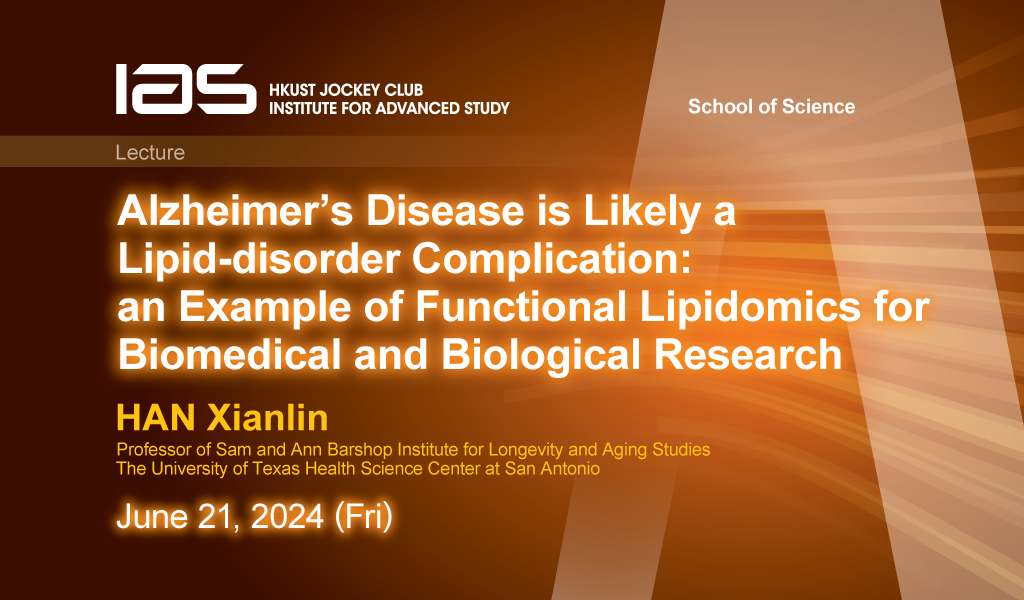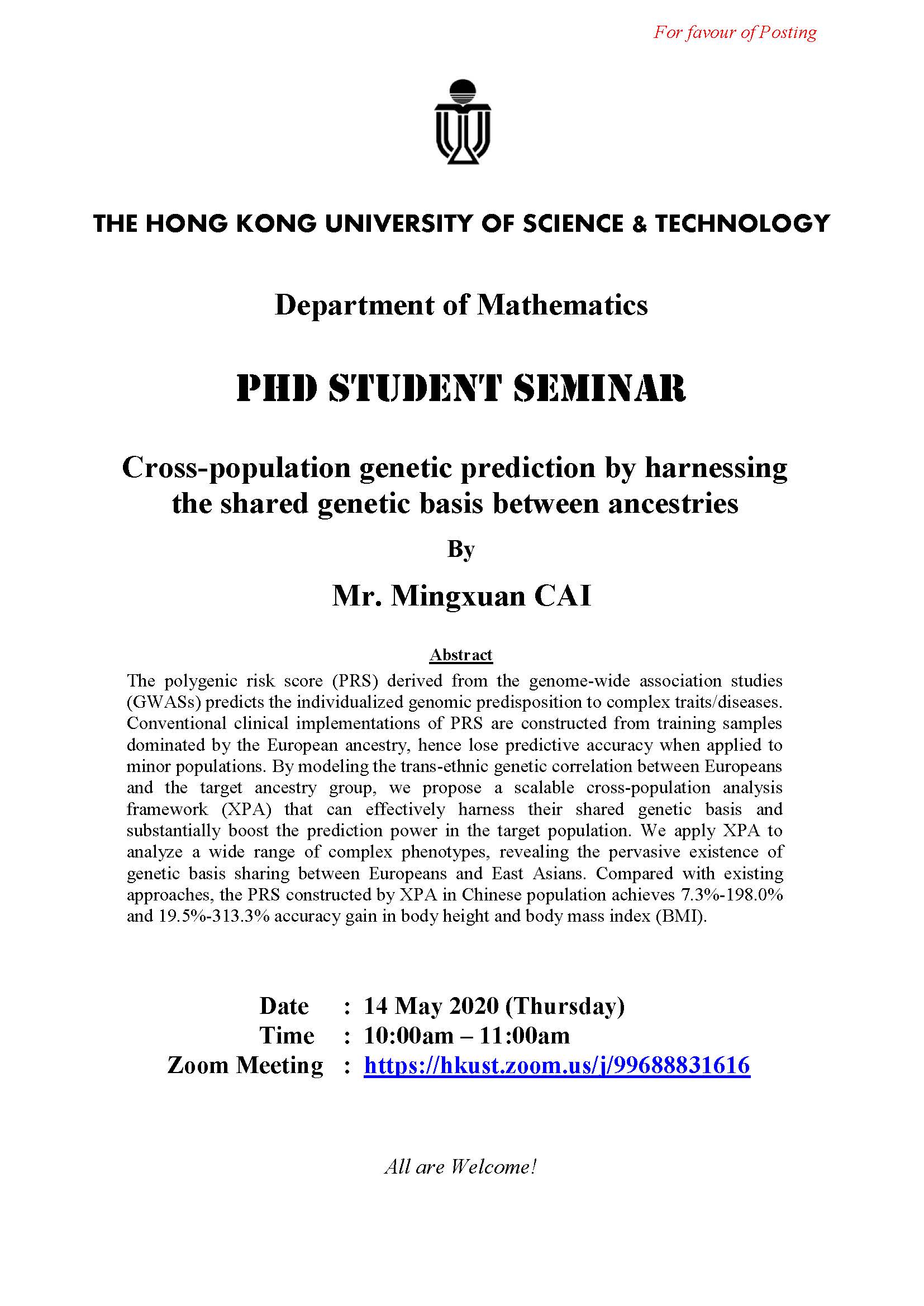The polygenic risk score (PRS) derived from the genome-wide association studies (GWASs) predicts the individualized genomic predisposition to complex traits/diseases. Conventional clinical implementations of PRS are constructed from training samples dominated by the European ancestry, hence lose predictive accuracy when applied to minor populations. By modeling the trans-ethnic genetic correlation between Europeans and the target ancestry group, we propose a scalable cross-population analysis framework (XPA) that can effectively harness their shared genetic basis and substantially boost the prediction power in the target population. We apply XPA to analyze a wide range of complex phenotypes, revealing the pervasive existence of genetic basis sharing between Europeans and East Asians. Compared with existing approaches, the PRS constructed by XPA in Chinese population achieves 7.3%-198.0% and 19.5%-313.3% accuracy gain in body height and body mass index (BMI).
5月14日
10am - 11am

地点
https://hkust.zoom.us/j/99688831616
讲者/表演者
Mr. Mingxuan CAI
HKUST
HKUST
主办单位
Department of Mathematics
联系方法
mathseminar@ust.hk
付款详情
对象
Alumni, Faculty and Staff, PG Students, UG Students
语言
英语
其他活动

6月21日
研讨会, 演讲, 讲座
IAS / School of Science Joint Lecture - Alzheimer’s Disease is Likely a Lipid-disorder Complication: an Example of Functional Lipidomics for Biomedical and Biological Research
Abstract
Functional lipidomics is a frontier in lipidomics research, which identifies changes of cellular lipidomes in disease by lipidomics, uncovers the molecular mechanism(s) leading to the chan...

5月24日
研讨会, 演讲, 讲座
IAS / School of Science Joint Lecture - Confinement Controlled Electrochemistry: Nanopore beyond Sequencing
Abstract
Nanopore electrochemistry refers to the promising measurement science based on elaborate pore structures, which offers a well-defined geometric confined space to adopt and characterize sin...

